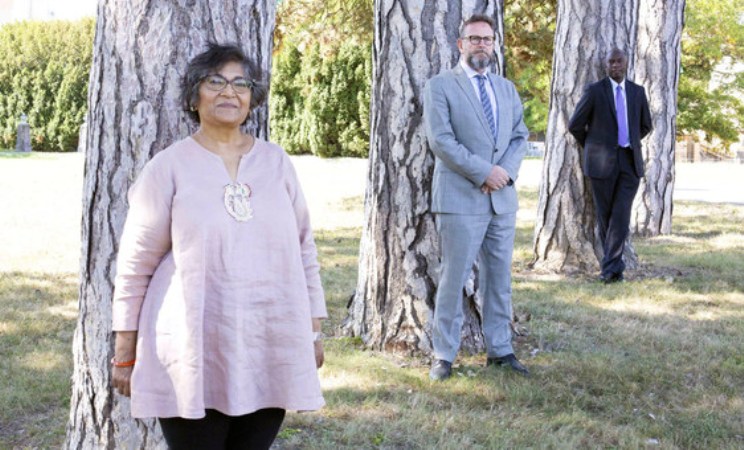South Sudan: UN Commission urges African Union to support justice process
November 25, 2024 (NEW YORK) – The UN Commission on Human Rights in South Sudan has called on the African Union (AU) and the international community to intensify their support for the peace process and a holistic transitional justice to ensure sustainable peace.
The Commission, in a press release issued in Monday, welcomed the recently enacted laws establishing the Commission for Truth, Reconciliation, and Healing (CTRH) and Compensation and Reparation Authority (CRA), and urged the AU to provide the support to operationalize the laws.
It called on the AU to renew its efforts to revive the stalled process of establishing the Hybrid Court for South Sudan. The three transitional justice mechanisms together with critical state-building measures provided for under the 2018 Revitalized Agreement on the Resolution of the Conflict in the Republic of South Sudan form the cornerstone of the country’s path toward healing, accountability, and lasting peace.
In the statement, the Commission said Commissioner Barney Afako led a mission from November 18–22 to Addis Ababa in Ethiopia, which hosts the headquarters of the AU. The Commission’s delegation met with the AU ad hoc Committee on South Sudan (C5 group), AU Commission focal points on legal matters, conflict prevention, governance, human rights, and transitional justice, as well as the AU Peace and Security Council. They also engaged with civil society representatives and diplomats.
“Despite the numerous setbacks, this is not the time to abandon South Sudan,” said Afako.
Also cited is the need for enhanced coordination between the African Union and the Government of South Sudan to support holistic, survivor-centered and people-driven transitional justice processes.
“They recognized the need for an effective high-level mechanism through which technical and senior AU entities would develop and coordinate strategies for mobilizing technical, financial and political support for achieving holistic transitional justice processes,” the Commission noted.
The Commission said initial steps will include adopting, in coordination with the UN, a harmonized and transparent process for the selection of credible and competent commissioners for the Truth Commission and members of the Reparation Authority.
AU interlocutors also acknowledged the need to re-engage Juba on completing the establishment of the Hybrid Court as an integral component of the transitional justice.
The discussions in Addis Ababa underscored the need to implement the recommendations of the October 2024 report of the Judicial Review Commission, which provides the basis for developing immediate and longer-term measures for strengthening the criminal justice system and domestic accountability for gross human rights violations.
“South Sudan’s leaders must show the world their commitment to justice by investing in establishing an independent judiciary. Corruption and the diversion of resources continue to undermine the country’s ability to build a functioning judicial system. Strengthening the domestic justice system—by creating a credible and independent judiciary, investing in legal and judicial infrastructure, and rooting out corruption—must be a key priority. While the Hybrid Court is necessary to ensure accountability for the most egregious crimes, it must be complemented by credible domestic accountability, truth-telling, reparations, and critical state-building measures to address the full range of victims’ needs and guarantee non-recurrence of atrocities,” emphasized Commissioner Carlos Cestresana Ferandez.
“With the passing of laws for the Truth Commission and Reparations Authority, South Sudan and the African Union must now advance, with the support of the international community, all the measures agreed in the peace agreement to ensure accountability, truth-telling, and reparations, without which reconciliation and healing will remain elusive,” said Commissioner Yasmin Sooka.
She added, “The people of South Sudan deserve a peaceful future built on solid foundations of justice.”
The Commission is scheduled to address the UN Human Rights Council in February 2025.
The Commission on Human Rights in South Sudan is an independent body mandated by the United Nations Human Rights Council. The Commission, which was first established in March 2016, is mandated to investigate the situation of human rights in South Sudan and to make recommendations to prevent a deterioration of the situation, with a view to its improvement. The Commission is also mandated to determine and report the facts and circumstances of human rights violations and abuses, including by clarifying responsibility for crimes under national and or international law
(ST)

